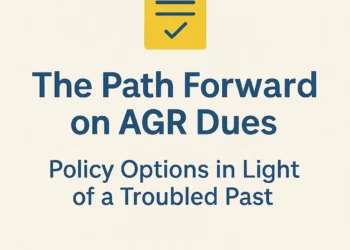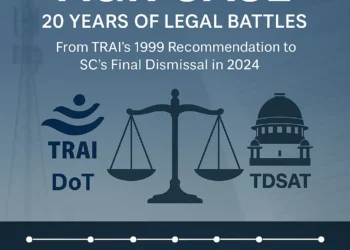Background
The decision to charge a license fee as a share of revenue was offered by the DoT as a “migration package” on 22nd July 1999 to bailout the then licensee from the risk of bankruptcy due to excessive bidding in the auction held after NTP (National Telecom Policy) 1994. Thereafter, the issue has been marred by constant litigation between the DoT and the licensees centered around the “definition” of AGR “Adjusted Gross Revenue”. The DoT stretched the definition of AGR to encompass all revenues (except a few like termination and roaming charges which are collected on behalf of the other operator) including some which do not even qualify as revenues if mapped with the conventional accounting standards. Licensees, on the other hand, wanted inclusion of only those revenues in the AGR which emanates from the activities that required a license. They want the revenues from activities which are fundamentally non-telecom in nature to be excluded from the AGR.
The Legal Battle
The matter when to the TDSAT, and the tribunal on 7th July 2006 decided the matter in favor of the licensee and against the government. The TDSAT’s decision was based on the fact that the DoT cannot demand a share of revenue as license fees which are derived from activities that do not require a license. It also concluded that DoT while deciding the definition of AGR did not take proper consideration of the recommendations made by TRAI, and instead went ahead based on the report of a private consultant that DoT hired to seek advice. DoT also did not inform TRAI about the findings of the consultant.






